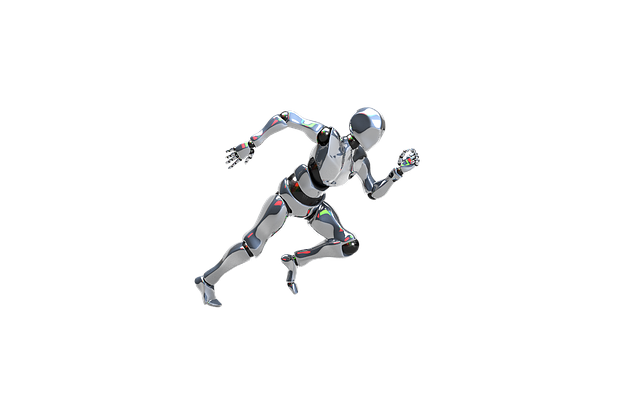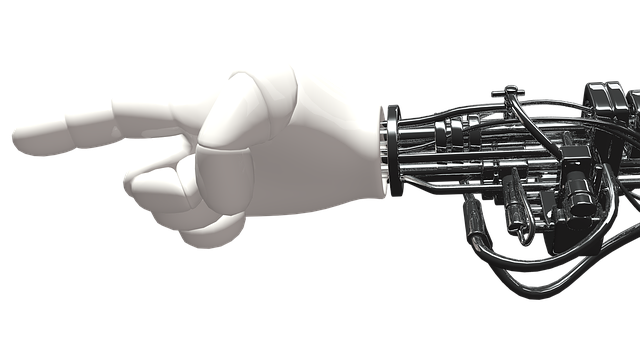Marketing professionals embrace AI workflows as a game-changer, automating tasks and personalizing campaigns for better audience engagement. AI chatbots streamline sales, enhance customer interactions, and optimize marketing efforts through data analysis. This revolutionizes content creation, enables hyper-personalization, boosts conversion rates, and cultivates brand loyalty in today's digital era. AI analytics provide deeper insights, allowing precise targeting and data-driven campaign adjustments to stay ahead of competition.
Personalize your marketing campaigns and gain a competitive edge with AI workflows. In today’s data-driven landscape, understanding and leveraging AI can revolutionize how you engage customers. This article explores the multifaceted benefits of integrating AI into marketing strategies. From enhancing efficiency through automated tasks to creating tailored content that captivates audiences, discover how AI analytics can optimize every step. Learn about the power of data-driven personalization and navigate the future of marketing with AI workflows.
- Understanding AI Workflows for Marketing Efficiency
- Data-Driven Personalization: AI's Role in Campaign Creation
- Automating Tasks: Streamlining Marketing Campaigns with AI
- Enhancing Customer Engagement Through Personalized Content
- Measuring Success: AI Analytics for Campaign Optimization
Understanding AI Workflows for Marketing Efficiency

Marketing professionals are increasingly recognizing the power of AI workflows to revolutionize their strategies. An AI workflow for marketing campaigns involves integrating artificial intelligence across various stages of the marketing process, from customer segmentation and data analysis to personalized content creation and automated communication. This technology enables marketers to make data-driven decisions, target specific audience segments with precision, and create tailored experiences that resonate with individual consumers.
By leveraging AI chatbots and assistants, businesses can streamline sales processes, enhance customer engagement, and optimize marketing efforts. These tools can analyze vast amounts of customer data, provide valuable insights, and even personalize content in real-time. For instance, an AI assistant can help segment customers based on their preferences, purchase history, or browsing behavior, allowing for more effective targeting and higher conversion rates. This level of personalization ensures that each interaction with a brand is relevant and meaningful, fostering stronger customer relationships and driving business growth.
Data-Driven Personalization: AI's Role in Campaign Creation

Personalization is key to engaging modern consumers, and Artificial Intelligence (AI) workflows are transforming how marketing campaigns achieve this. By leveraging vast amounts of customer data, AI algorithms can identify intricate patterns and preferences, enabling highly tailored experiences. This data-driven approach ensures that each interaction with a potential customer feels unique and relevant, fostering stronger connections and higher conversion rates.
In the realm of creating marketing campaigns, AI serves as a powerful assistant. It automates repetitive tasks, allowing marketers to focus on strategy and creativity. For instance, AI can analyze past campaign data, customer behavior, and market trends to suggest personalized content, timing, and delivery methods for each consumer segment. This level of customization is particularly impactful in chatbot marketing, where a sales chatbot can engage customers in dynamic conversations, offering tailored product recommendations based on individual preferences and purchase history—all within an ecommerce automation framework.
Automating Tasks: Streamlining Marketing Campaigns with AI

In today’s digital era, personalizing marketing campaigns is essential for capturing the attention of diverse audiences and driving conversions. Artificial Intelligence (AI) workflows emerge as a game-changer in this landscape, enabling marketers to automate tasks and streamline their campaign management. By leveraging AI automation, businesses can efficiently create and execute targeted strategies at scale. For instance, AI algorithms can analyze vast customer data, identify patterns, and segment audiences based on behaviors, preferences, or demographics, thus facilitating the delivery of hyper-personalized content.
One notable application of AI in marketing is chatbot marketing. Chatbots powered by AI automation can interact with customers, providing personalized recommendations, answering queries, and even facilitating sales conversations. This not only enhances customer engagement but also reduces the workload on human customer service representatives, allowing them to focus on more complex issues. As a result, businesses can improve response times, increase customer satisfaction, and ultimately drive revenue growth through AI-driven marketing workflows.
Enhancing Customer Engagement Through Personalized Content

Personalized content is the key to enhancing customer engagement in today’s competitive market. By leveraging AI workflows for marketing campaigns, businesses can create tailored experiences that resonate with individual consumers. An AI agent can analyze vast amounts of customer data, including purchase history, browsing behavior, and preferences, to deliver highly relevant content at every touchpoint. This level of customization fosters a stronger connection between brands and their audience, increasing the likelihood of conversions and brand loyalty.
Ecommerce ai, integrated into these workflows, enables dynamic product recommendations, targeted email campaigns, and personalized landing pages. An AI funnel, for instance, can guide users through a journey where offers and content are adjusted based on real-time interactions. Such personalization not only improves customer satisfaction but also boosts marketing ROI by ensuring that every interaction is meaningful and aligned with individual needs and interests.
Measuring Success: AI Analytics for Campaign Optimization

Measuring success is a critical aspect of any marketing campaign, and AI analytics plays a pivotal role in optimizing these efforts. By integrating AI into your marketing workflows, you gain access to powerful insights that go beyond basic metrics. AI algorithms can analyze vast amounts of data generated during campaigns, identifying patterns and trends that might otherwise remain hidden. This enables marketers to understand customer behavior on a deeper level, leading to more precise targeting and personalization.
For instance, an AI-driven sales chatbot can not only handle customer inquiries efficiently but also gather valuable data through conversations. This information can then be used to refine marketing strategies, ensuring that future campaigns are tailored to the specific needs and preferences of the target audience. Chatbot automation and ai automation in general streamline processes, allowing marketers to quickly adapt and respond to market dynamics. As a result, businesses can enhance their marketing ROI (return on investment) by making data-driven adjustments and staying ahead of the competition.
Personalizing marketing campaigns using AI workflows offers a powerful combination of efficiency, data-driven insights, and automation. By leveraging these capabilities, marketers can create tailored content that resonates with individual customers, fostering enhanced engagement and improved campaign outcomes. As AI continues to evolve, embracing these technologies will be key to staying competitive in today’s dynamic marketing landscape. Implementing AI workflows allows businesses to optimize their strategies, ensuring each campaign is as effective as possible.
